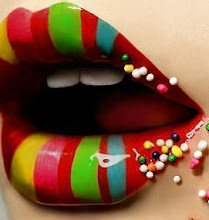Tuesday, October 12, 2010
Have Women Learned Anything About Lovers and Husbands?
I know from bad boys. I grew up on Ocean Avenue in Brooklyn. My cousins were the beautiful ones with black hair and eyes like sharks: so dark so you couldn't tell the pupils from the iris.
I never dated an Italian although my tastes in guys were otherwise what you might call eclectic although, believe me, they've been called worse.
I liked the tougher boys because they offered drama. As a kid, one of my favorite songs was Connie Francis's "Johnny, Get Angry." Connie begs her boyfriend to get angry and get mad, to give her the "biggest lecture" she's ever had. She tells him that she wants a "brave man" and a "cave man," and that by being angry will prove that he "cares, really cares" for her." His anger and her fear of him are seen as "proof" of their love. Conjuring up images of cave men, dragging women around by the hair, the 1950's song is representative of a school of romance that assigns pain as proof of love
Related Links
Search for a mental health professional near you.
So much for the childhood of a feminist critic, right?
Conjuring up images of cave men, the 1962 song is representative of a school of romance that assigns pain as evidence of love. I'd like to think things have changed. But I don't believe they have.What's my latest evidence?
The exchange I had with an incredibly smart former student, who is now an incredibly accomplished editorial assistant when, I sent her the piece I'd written about Bad Boyfriends.
"Here's my question, doll: do younger women still throw themselves under emotional trains with the same alacrity once exhibited by women of my generation?" I asked. "Or have you all learned better?""We're probably worse," she answered, no doubt texting while talking, something she wasn't permitted to do when she was still in my class; you can hear when they do this even though they think you can't."Tell you the truth, we probably do it faster."
My graduate students who were both part of the conversation, also agreed.
I was astonished.
I was even more astonished that we then instantly started to talk about a book rarely discussed on Ocean Avenue: Bronte's Wuthering Heights. It's still the Bad Boy/Good Boy motherlode.
If Heathcliff represents the raw, a la Levi-Strauss, then Linton represents the cooked. Heathcliff is destined by his very soul to be the Bad Boy; Linton, equally bound by his destiny, is the Good.
In one telling scene, Bronte shows us a very young Cathy dividing her food and attention between a fierce guard dog that has attacked her but is now gently won over to her side, and a small indoor-pet dog that is equally affectionate. It is clear that the dogs represent the two men. (Insert "duh" here.) This becomes especially clear when Cathy pinches the nose of the guard dog to hurt it slightly, but she keeps it by her. So will Cathy and Heathcliff torment each other but be unable to separate. Cathy can articulate quite clearly her attraction to Linton as well as to Heathcliff; some critics seem remarkably surprised by the very idea that she can desire two men simultaneously. She wants one man who can be both lover and husband at the same time.
She doesn't want two men; she wants one man who can meet all her needs. "‘I wish I were a girl again, half savage and hardy, and free ... and laughing at injuries, not maddening under them!‘" Cathy longs for the prelapsarian moment, the time before her fall into the world of romance, in order to escape from the decision of having to choose between the two
That's what we're really looking for: a Bad Boy who not only offers drama, but who can help us organize our lives.
Good luck to us with this little project. And, ummm, Heathcliff?? You still available? Are you secretly maybe a little bit Italian?
Subscribe to:
Post Comments (Atom)

No comments:
Post a Comment